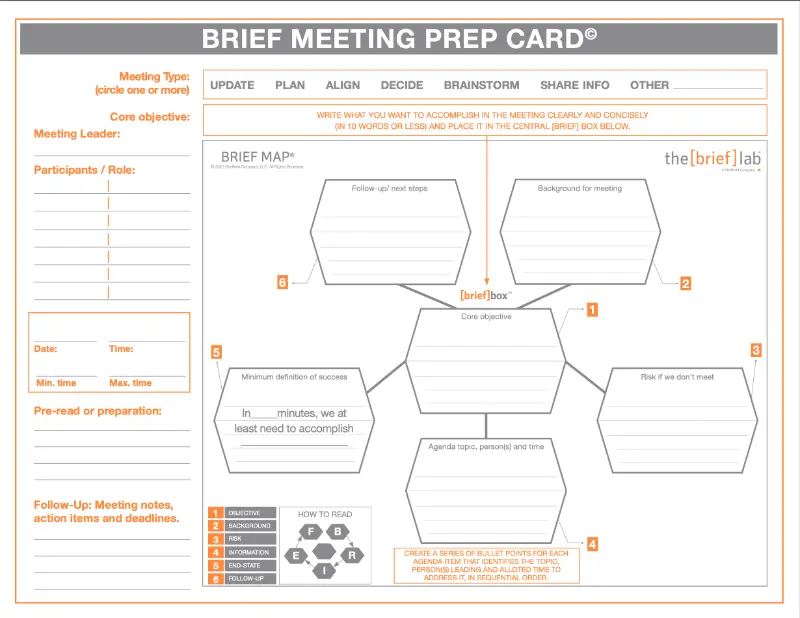
As the founder of The BRIEF Lab and the author of Noise: Living and Leading When Nobody Can Focus and BRIEF: Make a Bigger Impact by Saying Less I specialize in helping people become deliberate, clear, concise communicators. This blog is based on a recent podcast episode (“Just Saying” episode 332) 3 Ways to Communicate Like a Boss. In this blog post, I’ll share three key methods to help you communicate like a boss and elevate your leadership skills.
How to Communicate Like a Boss
Have you ever wondered what makes certain leaders so influential? In addition to subject matter expertise, influential people are nearly always expert communicators.Yet, many of us don’t take the time to improve this vital skill.
As a leader, being clear and concise should be your not-so-secret weapon. It’s the best way to break through the noise that surrounds all of us, and be ultra-clear about your vision and what you want your team to accomplish. Let’s take a look at three things you can do to help you communicate like a boss: using the 1-2-1 rule, cutting out filler words, and avoiding excuses.
1. The 1-2-1 Rule
The 1-2-1 rule is a great way to frame the conversation when someone on your team comes to you with problems. With this method, you’re asking your team to really think about the problem and define it clearly. Here’s how it works:
- Identify the Problem: Ask them to clearly define one problem they’re trying to solve.
- Propose Solutions: Ask them to suggest two courses of action to address the problem.
- Make a Recommendation: Finally, ask them for one recommendation that they believe is the best solution.
By using this method, you encourage your team to think critically and propose solutions, making your role as a leader more about guiding your team, rather than solving every issue yourself. As a boss, you’re communicating that you have confidence in them and their ability to problem-solve. Who wouldn’t want a boss like that?
Benefits of the 1-2-1 Rule
The benefits of 1-2-1 are simple, powerful, and long-lasting:
- Clarity: The 1-2-1 rule helps you and your team get clear on the problem.
- Deliberation: This rule encourages thoughtful consideration of solutions.
- Empowerment: It empowers your team to take ownership and make recommendations.
 2. Cut the Filler Words
2. Cut the Filler Words
Filler words — or intro words — can weaken your message and diminish your presentation. Here are some examples of filler words and how to cut them out:
- “I think we should … ” vs. “We should … “
- “Just checking in to see if you have that report.” vs. “I’d like to see that report.”
- “Maybe you could … ” vs. “Here’s what I need you to do.”
In these instances, “I think,” “just checking in,” and “maybe” can signal a lack of confidence or indecision. These filler words rob you of the chance to be impactful. Remove these words, and you immediately signal that you are confident, decisive, and impactful.
How to Identify and Remove Filler Words
Once you start listening — to yourself and others — you’ll recognize filler words everywhere! Make a mental note, or even an actual note, of when you hear them, what they are, and how much more effective the conversation would be without them.
- Listen to Conversations: Pay attention to how often you and others use filler words.
- Be Direct: Practice speaking without these unnecessary qualifiers.
- Get Feedback: Ask for feedback from trusted colleagues to help you identify and eliminate filler words.
3. Omit Qualifiers and Excuses
Qualifiers and excuses tossed into a conversation undermine your credibility as a leader, and most people are unaware they are doing this. Here’s what it looks like:
- “Sorry for the short notice, but …”
- “If I may suggest … “
- “I’m no expert, but … “
“Sorry,” “but,” and “if,” convey one thing: an excuse. Your team will be unsure if you know what you’re doing and may doubt your own commitment to what you’re saying.
 Here’s what to do instead:
Here’s what to do instead:
- Own Your Decisions: Stand by your choices and communicate them confidently.
- Be Unapologetic: Deliver your messages with conviction and clarity.
- Cut the qualifiers and the apologies. Speak clearly and take ownership of your ideas, directives, and recommendations
How The BRIEF Lab Can Help
Using these three methods — the 1-2-1 rule, cutting out filler words, and omitting excuses — you can significantly enhance your communication skills. The BRIEF Lab offers a variety of communications courses for teams and leaders, such as BRIEF 101, to help everyone on your team communicate like a boss. Professional leaders recognize the value of concise communication as a core skill that sets them apart, and we can help. When you and your team learn to be BRIEF you will:
- Reduce time spent in meetings, briefings and your inbox.
- Make better decisions faster based on clear, consistent information.
- Develop consensus that unifies effort and encourages follow-through.
- Enhance understanding of your mission and message.
- Improve operational efficiency and effectiveness.
- Ensure clarity to reduce confusion and re-work.
Contact us to learn about our offerings; we’ll teach you and your team how to embrace a culture of brevity.

